Where Are They Now?: 1997 Industry Hall Of Fame Inductees
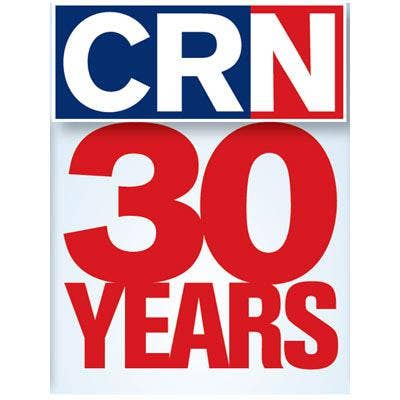
CRN Hall of Fame Inductees, 1997: Then and Now
As CRN celebrates its 30th anniversary this year, we are looking back at some of our coverage throughout the years and revisiting some of our favorite projects and special reports. One such project was the creation of the CRN Industry Hall Of Fame, founded in 1997 to honor the technical innovation and business acumen of the men and women responsible for jumpstarting the Information Age. Here we take a look back at the first class of inductees, why they were chosen and what they’re up to now.
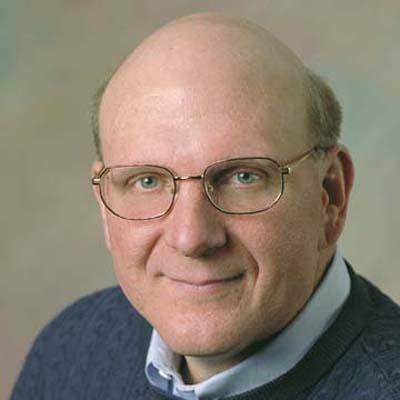
Steve Ballmer
Achievements: Ballmer joined Microsoft as its first business manager in 1980 and gained notoriety as the chief architect of the company's sales and channel strategy. He is credited with coming up with the branding and pricing strategies that made Microsoft the software giant it remains today. He was also a member of the original Windows 1 team.
Today: Today Ballmer is Microsoft's CEO, a position he's held since 2000. About three weeks ago, Ballmer made a secretive announcement in West Hollywood that marked a significant shift in course for the software company – Microsoft's entrance into the tablet arena and dive into the hardware industry. Microsoft has yet to release its new Surface tablet, but the company hopes its strike into the tablet fray will create fervor for Windows-based mobility devices.
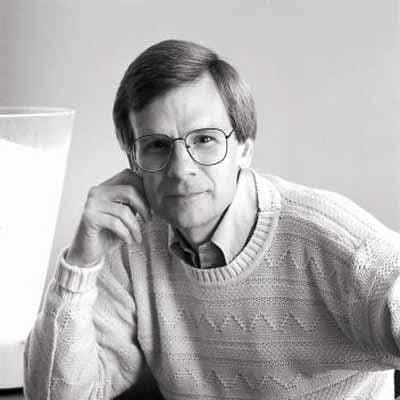
Paul Brainerd
Achievements: Brainerd founded Aldus, the company behind PageMaker, in 1984 and was lauded for his revolutionary desktop-publishing software that made publishing accessible to the masses. The tools now used by designers, developers and publishers, wouldn't have been possible without Brainerd's productivity tools. Brainerd ran Aldus until 1994, when Adobe bought it out.
Today: Brainerd slipped out of the tech arena after Aldus's purchase by Adobe. He returned to his childhood roots in Seattle to focus on his lifetime passion for the environment. As a result, he formed the Brainerd Foundation – which helps fund various environmental groups around the area – as well as the environmental non-profit group Groundwire. In 1997 Brainerd joined together with Seattle business leaders to form Social Venture Partners, an organization that connects lucrative business executives who want to give back to their community with local non-profits. As of today, SVP has affiliates in 25 cities across North America and Japan and SVP Seattle touts more than 400 partners.
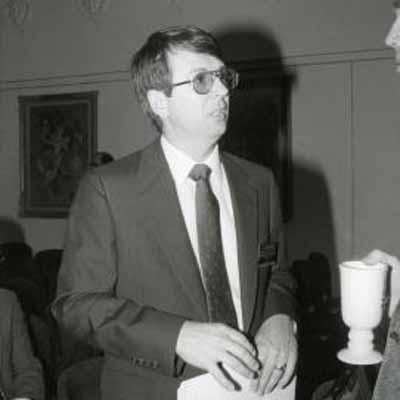
Joseph "Rod" Canion
Achievements: Canion was one of three Texas Instruments engineers-turned-entrepreneurs responsible for founding Compaq Computer. President of Compaq from 1982 to 1992, Canion took on the biggest computer giant of the day, IBM. He wanted to make a system that worked better and ran faster than the Osborne, the world's first portable computer. Compaq became a formidable opponent for IBM by making its computers compatible with IBM software, realizing that few developers would uniquely write software for an emerging start-up. By choosing to only sell its products through resellers, Compaq quickly became one of the fastest growing companies in America.
Today: Since leaving Compaq in 1991, Canion has been a chairman at Insource Technology, which he also founded, and Questia Media, where he led the initial investment round, as well as a director at the online media company Auditude. Currently he is a board member for the investment management company Invesco, online search engine ChaCha Search, and Houston-based solution provider Encore Health Resources.
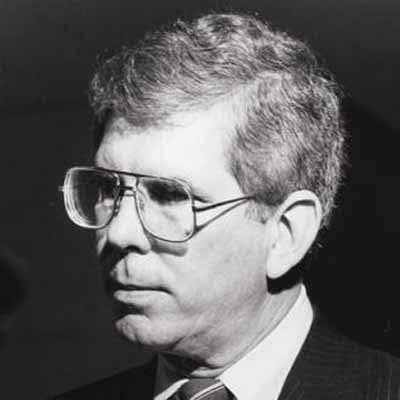
Philip "Don" Estridge
Achievements: As the first president of IBM's Entry Systems Business, Estridge led the team that created IBM's first PC as well as the team that sold it. In order to make the IBM PC a success against Apple's Macintosh, Estridge had to change the company's mantra of building every piece of the hardware itself and had to reach out to third-party vendors for cheaper components. He also decided to partner with Microsoft by installing DOS on its own computers – a move that many at IBM had a hard time swallowing, but one that put IBM's PC in the lead.
Today: Estridge and his wife, Mary Ann, passed away in August of 1985 when their plane crashed at the Dallas-Fort Worth International Airport. Estridge is remembered as one of the inventors of the PC industry and the father of IBM's PC. Estridge has a middle school in Boca Raton, Florida named after him that is devoted to a high tech curriculum.
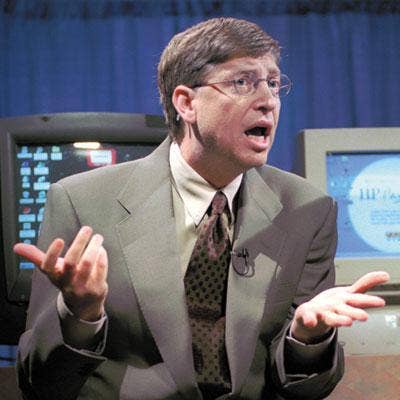
Bill Gates
Achievements: Programming since he was 13 years old, Gates made a name for himself in the tech industry as the founder and CEO of software giant Microsoft – eventually earning him the title of "wealthiest man in the world." He didn't just revolutionize the tech industry, he helped to create it.
Today: Gates was CEO of Microsoft until 2000, when he was succeeded by Steve Ballmer. He stepped down but didn't leave the company, becoming Microsoft's chief software architect – a role Gates created for himself. That same year Gates and his wife established the Bill and Melinda Gates Foundation, a privately-run philanthropic organization used to donate large amounts of money to global charities and scientific research. In 2004 Gates became a director for long-time friend Warren Buffett's investment company, Berkshire Hathaway. Gates remains a member of the board but in a non-executive role and continues to focus on philanthropy through his foundation.
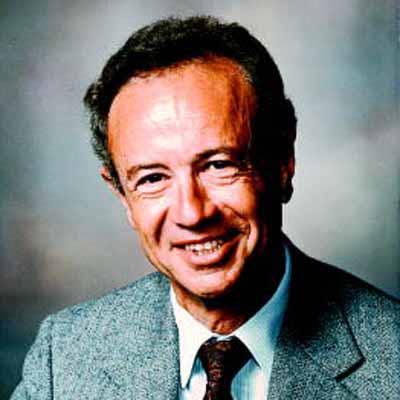
Andrew Grove
Achievements: Grove acclaimed for his revolutionary role in the development and advancement of micro-processing. Along with Gordon Moore and Robert Noyce, Grove in 1968 started Intel, which today is the world's largest semiconductor manufacturer. Grove was Intel's president from 1979 to 1987, when he became CEO after Moore stepped down. Grove helped the company shift from a supplier of chips to a leader in the PC industry.
Today: Grove was named chairman and CEO of Intel Corp. in 1997, but stepped down as CEO a year later and finally as chairman in 2005. He remains Intel's senior advisor and is a board member for the Prostate Cancer Foundation, a cause near to him after his own 1994 battle with the disease. Grove has written several books and taught for years at UC Berkeley and Stanford's Graduate School of Business. He has received numerous awards, including Time Magazine's Man of the Year in 1997 and IEEE's Medal of Honor in 2000. He actively participates in his private philanthropy organization, the Grove Foundation.
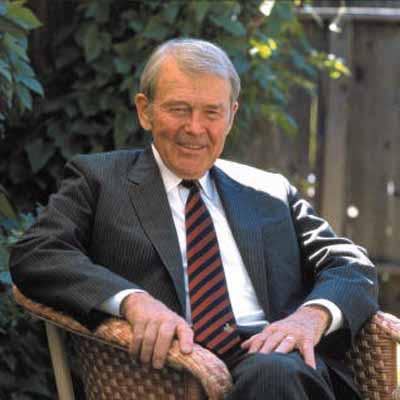
William Hewlett
Achievements: Hewlett is best known for his partnership with Stanford classmate David Packard and their founding of Hewlett-Packard in a Silicon Valley garage. Perhaps even more influential than the many technological advances HP made was the culture and spirit of the company, an aspect led by Hewlett, known as the "HP Way." Aspects of HP's Way were eventually adopted by other tech companies, testifying to Hewlett's ingenuity.
Today: Hewlett remained an executive member of HP's board in various capacities until 1987. In 1997, he received the Heinz Award Chairman's Medal, along with David Packard, which recognizes outstanding accomplishments. After suffering two strokes, Hewlett passed away in January, 2001 at his home in Palo Alto – the city where it all began. In September 2011 Hewlett's name was included in the launch of the Entrepreneurial Walk of Fame in Cambridge, Mass.
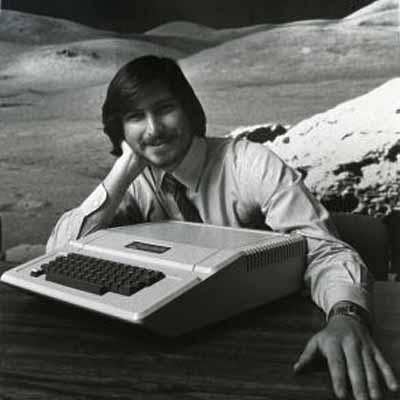
Steve Jobs
Achievements: Jobs' fame is far-reaching, but it all began in the Cupertino, Calif. garage of his parents' home in 1976 where he and friend Steve Wozniak founded Apple Computer. In 1984 Apple launched the Macintosh, a counter to IBM's PCs, and revolutionized the tech industry with its user interface. Forced out of Apple a year later, Jobs built his own start-up, NeXt, only to sell it to Apple in 1996 for $430 million. Once back, Jobs orchestrated a company shift that returned him to power, and he began turning Apple around to line up with his vision of the future.
Today: Jobs continued to turn the tech world on its head with the rejuvenation of Apple and the development of some of this century's most revolutionary products: the iPod music player and iPad tablet. In 2003 Jobs was diagnosed with pancreatic cancer, leading to almost a decade of wavering health issues. He resigned as Apple's CEO in August 2011, remaining chairman, and passed away in October of the same year. His biography, by Walter Isaacson, was published later that month and sold 379,000 copies its first week.
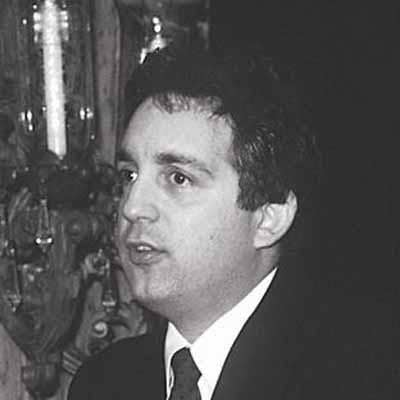
Mitch Kapor
Achievements: Kapor founded Lotus Development Corp. – of which he was President and CEO from 1982 to 1986 -- and created its spreadsheet software Lotus 1-2-3. Running on IBM's new PC, Kapor's spreadsheet quickly drowned out its competitors. Lotus 1-2-3 also marked the dawn of the customer service age as one of the first major products to include built-in help and tutorials that could be brought up on the screen.
Today: Kapor left Lotus in 1986 and invested in countless internet start-ups and philanthropic groups. In 1990 Kapor co-founded the Electronic Frontier Foundation, a non-profit organization that advocates for the incorporation of civil liberties into digital and online rights, where he sat as chairman until 1994. More recently, Kapor was the first chairman of the Mozilla Foundation in 2003, responsible for guiding the company that released the Mozilla Web browser.
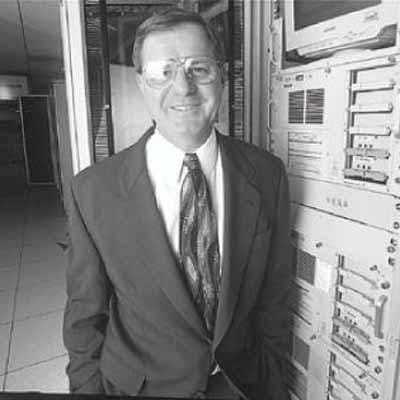
Chip Lacy
Achievements: As chairman and CEO of Ingram's Micro-D division, Lacy led the distributor to compete with some of the largest computer manufacturers of the time by quickly establishing partner programs for second-tier vendors, despite their past dealings with mainly larger companies. Lacy is hailed as the one who led Ingram Micro's massive growth in revenue, from a $100 million company to $12 billion by 1996.
Today: Shortly after his promotion to co-chairman and CEO of Ingram Micro in 1995, Lacy was let go in May 1996 due to a clash of ideals with the Ingram family during the company's transition from the private to public sectors. Lacy went on to become president and CEO of Micro Warehouse from late 1996 to 1997, and went on to serve on the board of Ingram Industries – parent company to Ingram Micro. In 2004, Lacy became chairman of the online data storage backup vendor EVault, which he helped to fund three years earlier, and in 2008 he joined the board of RFID tag company Confidex.
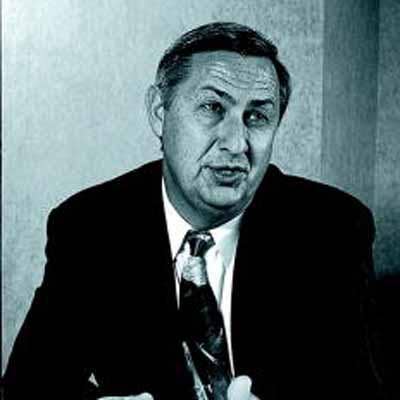
Jeff McKeever
Achievement: Co-founder, chairman and CEO of MicroAge, McKeever made a name for himself by building up his technology sales company to one of the most well-known computer franchisers in the industry. Founded in 1976, MicroAge was the first to have a computer store in a mall and was a prominent reseller of early PCs. The company faced many financial difficulties in its lifetime, including having to file for chapter 11 reorganization in 1981, but McKeever is admired for his consistent leadership – redirecting the company several times over its course and raising almost $11 million in 1987 at its public offering.< br>
Today: In 2001, MicroAge filed for bankruptcy and liquidated all their assets in order to pay their creditors. However, McKeever bought the rights to the company name and now uses it for the company Frontier Technology LLC. McKeever remains the company's CEO after 36 years, and MicroAge is still one of the prominent IT solution providers in the market today.
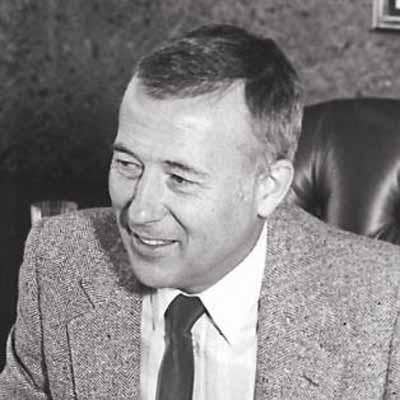
Bill Millard
Achievements: Founder and chairman of ComputerLand, Millard made his mark by creating one of the first reseller companies and helping to open up an industry. Millard began selling computer kits door-to-door until he was approached by car salesman John Martin-Musumeci with the idea of creating a store-front for his business. Thus, in 1976, ComputerLand was born, and Millard made the transition from manufacturing to franchising. The company faced an untimely demise in 1985, however, when competitor Micro/Vest, founded by Musumeci, won 20 percent of the company's stock per an old promissory note.
Today: In 1986 Millard moved to Saipan, the largest U.S. commonwealth in the South Pacific. After winning against an employee lawsuit, Millard then sold his company to E.M. Warburg, Pincus & Co. in 1987 for more than $200 million. Successfully disappearing for the next 20 years, Millard was finally located last September in the Cayman Islands by private investigators and reportedly owes the U.S. government more than $59 million in back taxes.
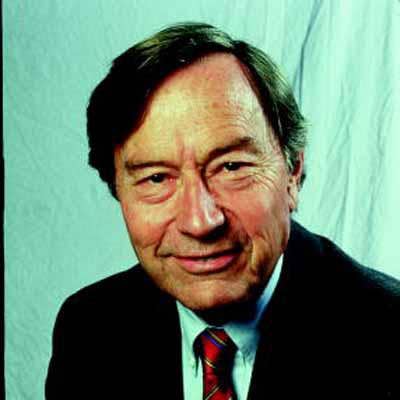
Ray Noorda
Achievements: Founder and CEO of infrastructure software provider Novell , Noorda pushed the company to develop a tiered channel, certification programs for engineers and a successful channel partner program that several other companies came to similarly adopt. By separating LAN software from its hardware servers and buying out key networking vendors, Noorda was able to lower the price of NICs, making them more affordable, and was able to face down some of the leading direct-sales forces by utilizing national distributors.
Today: Noorda was CEO and chairman of Novell from 1982 until 1994. In 1992, Noorda founded an investment firm called Canopy Group, of which he was CEO and owner until his death in October 2006.
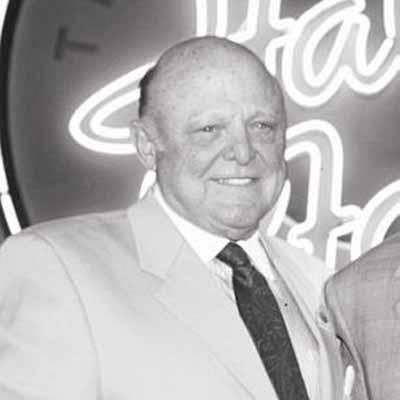
Edward Raymund
Achievements: Founder of Tech Data, Edward Raymund is best known for his role in building up one of the world's largest computer distributors. Beginning as a side project in 1973, Raymund shifted Tech Data from an electronics dealer to a monitors and add-on cards distributor. The company continued to evolve throughout the early '80s, adopting a two-tiered distribution that involved selling to VARs. Raymund's strategic methodology of organic growth strengthened Tech Data and helped to launched it into the $38-million-in-yearly-sales mark by 1986 – a number that pales in comparison to the $4.6 billion the company was worth in the in the 1990's.
Today: Raymund was CEO of Tech Data until 1985, when he sold it to his son for $10,000. However, he held onto the title of chairman until his retirement in 1991, when he became Chairman Emeritus. Raymund stayed connected to the company by remaining on the board, but turning his focus primarily on his company in Dallas, Texas, PC Service Source Inc. Involved in multiple charity organizations. He passed away in December, 2008.
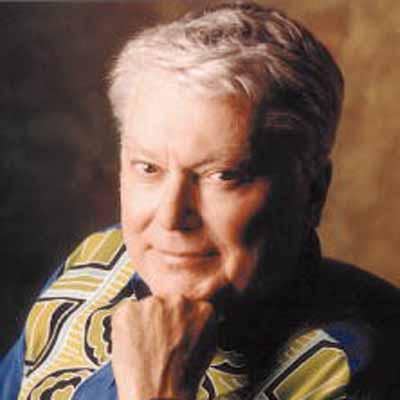
Alan Shugart
Achievements: Co-founder, chairman, and CEO of Seagate Technology, Shugart led the company into the spot of top disk drive supplier in the industry. By aiming for vertical integration, Shugart created the first independent drive manufacturer, and managed to make it last in a fiercely competitive market. In order to steer the company out of a financial pitfall, Shugart devised the bold acquisition of Imprimis Technology, a mainframe drive maker. Subsequently, Seagate's ability to make its own heads launched the company into the high-performance market.
Today: In 1997 Shugart received the IEEE Reynold B. Johnson Information Storage Systems Award. He resigned from his positions at Seagate in 1998. Shugart also led an unsuccessful campaign for his dog to be elected to Congress in 1996 – even writing a book about the experience – and in 2000 backed a failed initiative to get a "none of the above" option added to voting ballots. Shugart passed away in 2006 following complications from heart surgery.

More From CRN's 30th Anniversary
30 Years In The Channel:
CRN's 30th Anniversary
10 Computer Ads From The Early 1980s
Three Decades Of Tech Startups